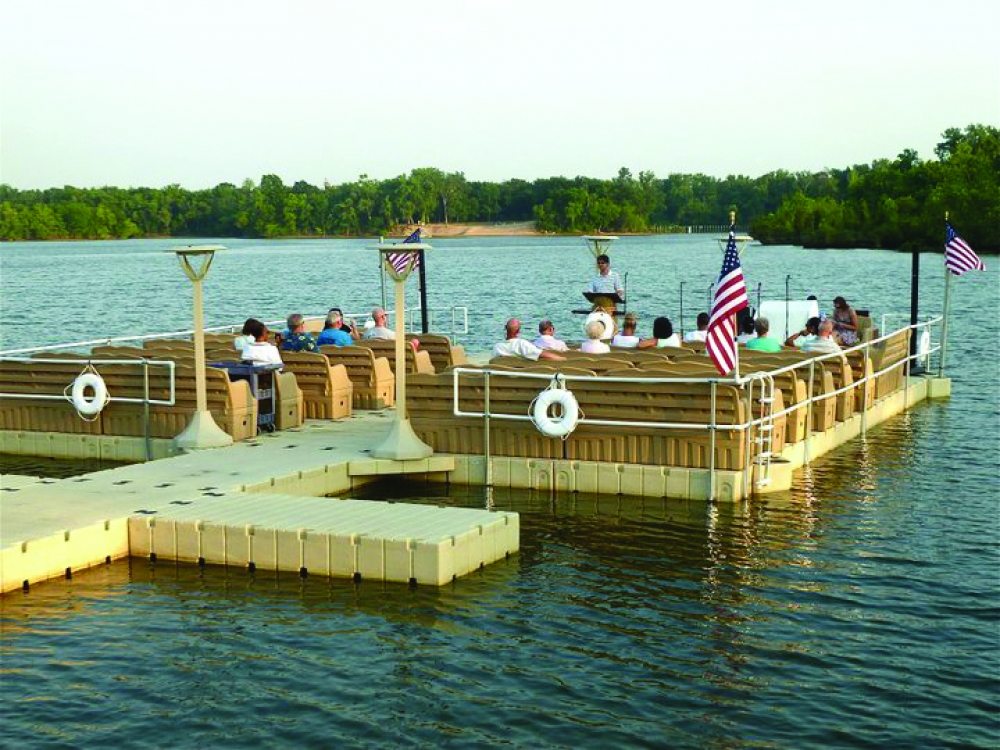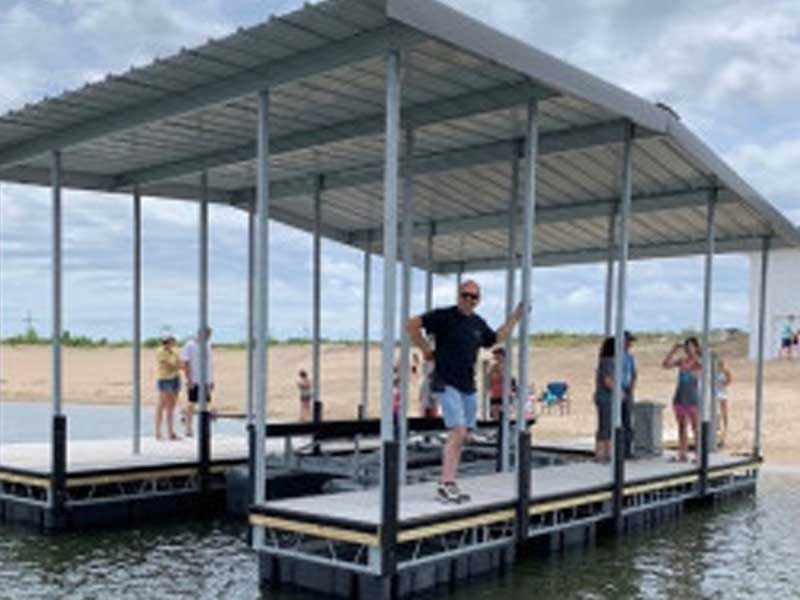Navigating the Options: Picking the Right Dock Company for Your Floating Dock Task
Navigating the Options: Picking the Right Dock Company for Your Floating Dock Task
Blog Article
Floating Docks: The Suitable Option for Versatile Water Accessibility
Floating docks present an engaging remedy for a range of water gain access to needs, providing versatility that goes beyond typical mooring choices. The modular nature of floating docks promotes modification, catering to specific needs.
Benefits of Floating Docks
Floating docks deal many advantages that boost water gain access to for various applications. Their capability to fluctuate with transforming water degrees makes them particularly useful in environments with rising and fall trends or seasonal variants. This versatility makes sure that vessels can quickly tie without worry for the water's depth, supplying a reputable platform for leisure, industrial, and industrial usages.
Additionally, floating docks are typically created from durable materials that stand up to rust, making them ideal for long-term use in aquatic settings. Their installation is usually much less invasive than conventional set docks, lowering the environmental impact and helping with quicker release (floating dock company). This adaptability enables easier relocation or reconfiguration according to individual requirements or ecological modifications
Security is another crucial advantage; floating docks can supply stable accessibility for people boarding or getting off from watercrafts and minimize the danger of mishaps related to unstable surfaces. They can be designed to accommodate a range of accessories, such as cleats and fenders, boosting performance. Generally, floating docks stand for an effective solution for boosting water gain access to across diverse fields while promoting safety and ecological sustainability.

Kinds of Floating Docks
Different sorts of floating docks provide to different requirements and settings, each designed with certain attributes to optimize performance. One of the most common kinds consist of modular docks, which include interlacing areas that allow for simple modification and expansion. These docks are ideal for leisure usage, as they can be tailored to fit different watercraft dimensions and water conditions.
Another preferred alternative is the stationary floating dock, which continues to be anchored in location yet drifts with changing water degrees. floating docks. This type is especially matched for locations with minimal tidal changes, giving secure access for fishing or swimming. Additionally, there are drive-on docks, which include a sloped layout that permits watercrafts to easily drive on and off, making them suitable for personal watercraft and smaller vessels
For industrial applications, durable floating docks are readily available, constructed from strengthened products to hold up against significant loads and severe marine atmospheres. Finally, green floating docks make use of lasting products and layouts to lessen ecological impact, usually incorporating attributes like plants to sustain neighborhood wildlife. Comprehending the various kinds of floating docks makes certain that individuals can select one of the most proper service for their specific needs.
Setup Refine Introduction
A successful installment of floating docks needs mindful preparation and attention to information to guarantee optimum performance and safety and security. The preliminary step includes evaluating the website conditions, view publisher site consisting of water deepness, current, and prospective obstacles. This analysis informs the option of the suitable dock products and design customized to the specific atmosphere.
Following, acquiring essential permits is essential, as numerous territories have regulations relating to construction on water bodies. When approvals are secured, the installment can proceed. Begin by preparing the structure, which may include anchoring systems or pilings customized to the dock kind and local conditions.
Complying with the structure setup, set up the dock areas according to manufacturer specs. Make sure that all parts are firmly fastened and lined up to stand up to ecological stresses. Position the dock in the assigned location, guaranteeing it is degree and stable.

Upkeep Tips and Finest Practices
After the setup process is total, continuous upkeep plays an essential duty in making certain the long life and capability of floating docks. Regular examinations ought to be performed to recognize any kind of indicators of wear, wear and tear, or damage - dock company. Examine for any type of loosened fittings, cracks, or separation in the dock areas, as these can jeopardize structural stability
Cleaning the dock is important to eliminate particles, algae, and other accumulation that can impact its look and security. Make use of a gentle stress wash occasionally to maintain tidiness without causing damage to the surface area. Furthermore, using a protective sealant every couple of years can help improve long life and withstand ecological wear.
Take notice of the mooring lines and anchors, guaranteeing they are totally free and safe and secure from corrosion. Replace any kind of degraded components immediately to stay clear of dangers. Seasonal adjustments may additionally be necessary; during severe climate condition, repositioning or strengthening the dock can prevent damage.
Applications for Floating Docks
Floating docks offer a multitude of applications, catering to both leisure and industrial needs. In recreational settings, they offer smooth accessibility to rivers for tasks such as boating, angling, and swimming. Their flexible nature permits for installment in differing water degrees, ensuring secure and stable access regardless of tidal fluctuations.
Commercially, floating docks are essential for marinas and waterfront companies. They help with the docking of vessels, allowing effective discharging and loading of goods. Their modular design permits easy development or reconfiguration to suit transforming organization needs, making them suitable for watercraft leasings, trip operations, or angling charters.
In addition, floating docks are utilized you could try these out in ecological applications such as marine research study and habitat remediation. They can act as systems for scientific studies, keeping an eye on water top quality, or conducting wild animals surveys without troubling sensitive environments.
In industrial contexts, floating docks are used in building recommended you read jobs, providing accessibility to hard-to-reach locations for equipment and employees. Their adaptability, toughness, and marginal influence on the setting make them an ideal selection for a variety of applications, boosting both performance and ease of access in numerous water-based atmospheres.
Conclusion
Finally, floating docks represent an optimum service for varied water access requires, owing to their adaptability, resilience, and modular design. These frameworks facilitate risk-free mooring for various applications while lessening environmental impact throughout installation. The minimized upkeep demands better enhance their usefulness. As such, floating docks act as a useful property for recreational, industrial, and ecological projects, making sure reliable access to rivers and advertising sustainable methods in marine settings.
Floating docks existing a compelling service for a range of water gain access to requires, using versatility that transcends standard mooring options.Floating docks offer countless benefits that boost water access for different applications. Generally, floating docks stand for a reliable remedy for boosting water accessibility throughout varied markets while advertising security and environmental sustainability.
An additional prominent option is the stationary floating dock, which continues to be anchored in area yet floats with transforming water levels.In final thought, floating docks stand for an optimal solution for varied water accessibility requires, owing to their adaptability, sturdiness, and modular design.
Report this page